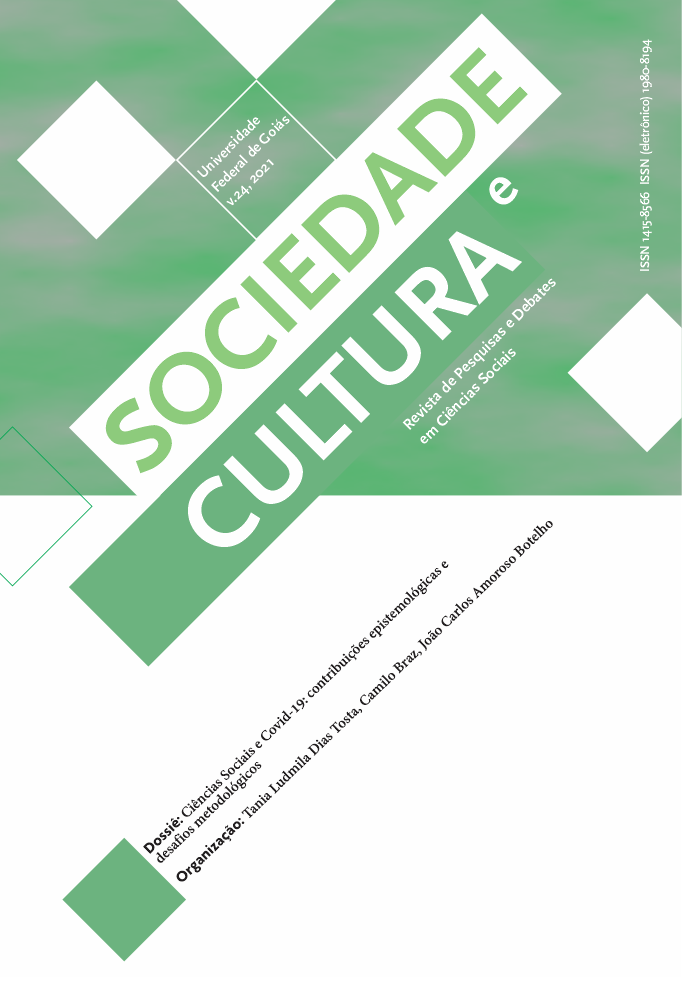Necropolitics, power and meanings of the coronavirus pandemic: an anthropological approach
DOI:
https://doi.org/10.5216/sec.v24.66274Abstract
The year 2020 was marked by the coronavirus pandemic. Brazil, a country particularly affected by the disease, is a terrible example on the world stage thanks to the high number of contaminated and dead people as a result of denialism and lack of programs and policies aimed at preventing and fighting the disease. This article, through literature analysis, media reports, and posts on the social media, aims to think through the Brazilian context by taking an anthropological perspective in face of the pandemic under two registers: the first is about the impact of government responses related to ideological issues based on necropolitics; the second concerns the fact that isolation and quarantine have had a major impact on society due to routine changes. Thus, the study seeks to analyze the symbolic meanings produced by the disease in relation to changes in habits and behaviors, especially with regard to the use of masks and practices for disinfecting environments and objects.
Downloads
Downloads
Published
How to Cite
Issue
Section
License
Copyright (c) 2021 Sociedade e Cultura

This work is licensed under a Creative Commons Attribution 4.0 International License.
Authors who publish in this journal agree to the following terms:
- Authors retain the copyright and grant the journal the right of first publication, the work being simultaneously licensed under the Creative Commons Attribution License, which allows the sharing of the work with acknowledgment of authorship and of the initial publication in this journal;
- Authors are authorized to enter into additional contracts separately, for non-exclusive distribution of the version of the work published in this journal (eg, publishing in an institutional repository or as a book chapter), with acknowledgment of authorship and of the initial publication in this journal;
- Authors are allowed and encouraged to post and distribute their work online (eg, in institutional repositories or on their personal page) at any point before or during the editorial process, as this can bring productive change as well as increases the impact and the citation of the published work (see O Efeito do Acesso Livre).



